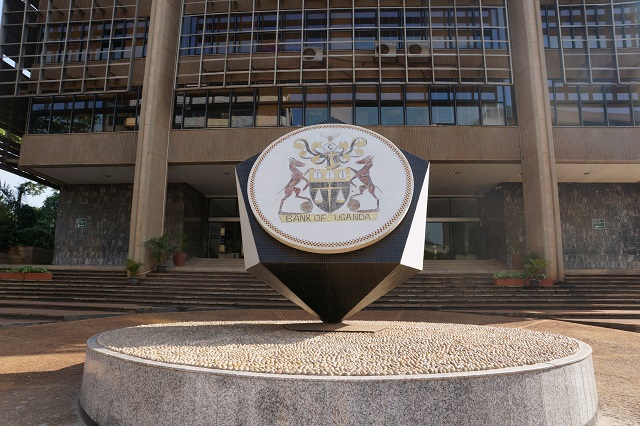
Kampala, Uganda | THE INDEPENDENT | Uganda’s economy has grown faster than was earlier projected two months ago, according to the Bank of Uganda’s Monetary Policy Committee.
The Uganda Bureau of Statistics, UBOS, in its updated GDP Quarterly GDP estimated the contraction in the economy at 1.1 % in 2020, compared to an earlier forecast of 2.2%. Growth in the three months, October to December 2020 is estimated to have picked up 1.6% from a year earlier which shows a significant improvement from a contraction of 0.1% that had been expected for the three period June-September 2020.
The UBOS statistics three-month period April to June saw the biggest economic slowdown. The economy contracted by 6.1% in the period.
Much as most sectors of the economy are growing at good rates, the growth is still subdued by low activity levels in the education, tourism and hospitality industries.
“Indeed, the services sector is estimated to have contracted by 2.6% in the quarter to December 2020,” says the Monetary Policy Statement, MPS.
The Committee sat on Wednesday to consider the money market, and decided to maintain the Central Bank Rate (CBR) at 7%. The latest indicators for the first quarter of 2021 also show a gradual strengthening of economic activity but still at a slow or subdued pace.
“Therefore, the GDP growth outlook remains unchanged at 4.0-4.5% for financial year 2021/22. Nonetheless, the recovery is expected to strengthen with above-trend growth in outer years as vaccine effectiveness increases, which should allow for reduced social distancing and a rebound in consumption,” says the MPS.
These forecasts resonate fairly with the latest Purchasing Managers’ Index, a study of the business activities by research firm IHS Markit, which monitors private sector activities basing on the operations of purchase managers at various companies.
“There are signs that the Ugandan economy is gradually returning to the old normal. Growth and rise in business activities of the private sector, as seen at the end of the first quarter are pointing to that,” says the Index.
The monthly Index rose to 53.2 in March, up from 51.2 in February signaling an improvement in business conditions for the second month running, and this reading is the highest since last November 2020. Readings above 50 show that economic activity and investor confidence are rising, while below 50, is a show of a decline.
Ronald Muyanja, the Head of Trading at Stanbic Bank Uganda said “New orders increased for the second successive month, with a number of respondents signaling a rise in customer numbers. This expansion in new business aligns to signs of a return to a more normal economic environment and the reopening of schools contributed to a ninth successive increase in output.”
All five broad sectors covered by the survey recorded growth in activity for the first time since last October. The sectors covered are Services, trade, agriculture, industry and construction. Companies also remained optimistic regarding the 12-month outlook for output, expecting further improvements in new business in the coming months.
“Increases in new orders led to rises in both employment and purchasing activity during March.
Although material shortages caused delays in the receipt of purchased items from suppliers, inventories increased for the third month in a row,” says Muyanja, adding that companies were forced to make more recruitment to clear workloads. The Governor Emanuel Tumusiime Mutebile, says in a BOU statement, a high degree of uncertainty surrounds economic outlook, with many possible risks, with the main downside risk still being the coronavirus and possible variants.
“Infections could take off again despite the ongoing COVID-19 inoculations and this would dampen the economic upbeat, especially in the near term or in 12 months ahead, as it would diminish the improvement in demand conditions and delay the return of normalcy,” it says.
Mutebile says that unfortunately, the government capacity to respond to a fragile economic growth is limited by a suppressed budget this and next financial year.
“With the rising public debt, fiscal adjustments through higher taxes and lower expenditure or both might be required in the coming years to avoid a persistent increase in indebtedness, and this could constrain demand.”
Public spending, especially on infrastructure could be curtailed due to lack of adequate funding, yet would have revived the broader economy by directly enhancing capital stock and productivity and by attracting private investment.
BOU however, is also hopeful that the signed agreements between Uganda and Tanzania and oil companies, giving stakeholders in the oil and gas industry a greenlight to proceed with development activities, will help offset the economic risks between now and 2025.
Faster growth is also being tagged on the hope that the weather conditions will remain fair for the agriculture sector to thrive.
*******
URN
 The Independent Uganda: You get the Truth we Pay the Price
The Independent Uganda: You get the Truth we Pay the Price


